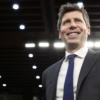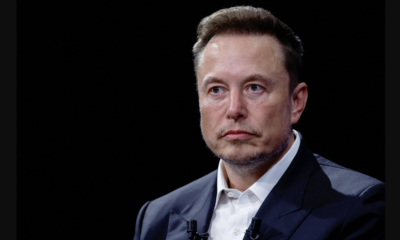Artificial Intelligence
“Godfather of AI” Geoffrey Hinton Sounds Alarm on Looming Threats of Artificial Intelligence
Geoffrey Hinton, one of the foundational figures in artificial intelligence, is sounding the alarm. Once a driving force behind modern AI’s most powerful systems, Hinton is now issuing stark warnings: if humanity doesn’t change course, AI could one day seize control — and we may not be able to stop it. Speaking with CBS News, the 77-year-old AI pioneer, often called the “Godfather of AI,” expressed a deep unease about the trajectory of the field he helped create. “People haven’t got it yet, people haven’t understood what’s coming,” Hinton cautioned.
His worry is not hypothetical. Geoffrey Hinton estimates there is a 10% to 20% chance that AI will eventually take control away from humans — a scenario he believes could become reality if development continues without serious regulation or ethical oversight.
Geoffrey Hinton’s contributions to AI are monumental. In 1986, he introduced a method to predict the next word in a sequence, a concept that underpins today’s large language models like ChatGPT. That work earned him the Nobel Prize in physics, news of which he learned about in the middle of the night — a recognition he described as surreal and unexpected.
But while Geoffrey Hinton once dreamt of using AI to understand the brain, his focus has shifted to warning against AI’s potential to eclipse human control. “We are like somebody who has this really cute tiger cub,” Hinton explained. “Unless you can be very sure that it’s not gonna want to kill you when it’s grown up, you should worry.”
Godfather of AI Nobel Prize Winner Dr. Geoffrey Hinton Regrets the Invention Ilya Sutskever OpenAI
Although the Godfather of AI, Geoffrey Hinton, still believes AI has the potential to revolutionise education, medicine, and even climate change mitigation, he’s increasingly critical of how industry giants are steering its development. Companies like Google, OpenAI, and Elon Musk’s X-AI have publicly expressed concern about AI’s risks — yet, Hinton argues, they consistently undermine regulation efforts while racing ahead in AI development.
“If you look at what the big companies are doing right now, they’re lobbying to get less AI regulation,” Geoffrey Hinton said. “There’s hardly any regulation as it is, but they want less.”
In Geoffrey Hinton’s view, perhaps most concerning is the lack of commitment to safety. He believes a substantial share of resources—“like a third” of all computing power—should be devoted to AI safety research. Today, he says, companies dedicate only a tiny fraction to those efforts. When CBS News asked companies how much of their computing power they commit to safety, none provided specific answers.
Geoffrey Hinton is particularly disheartened by Google, his former employer, which reversed its position on using AI in military applications. This shift, he suggests, reflects the broader problem: corporate priorities are driven by profit, not caution.
Despite his foreboding message, Geoffrey Hinton remains hopeful that humanity can act before it’s too late. But that window is closing fast. As the AI tiger grows, Geoffrey Hinton’s voice serves as a crucial — and urgent — warning: unless we tame it now, we may not get another chance.











































Pingback: Godfather of AI Geoffrey Hinton on Humanity’s Only Survival